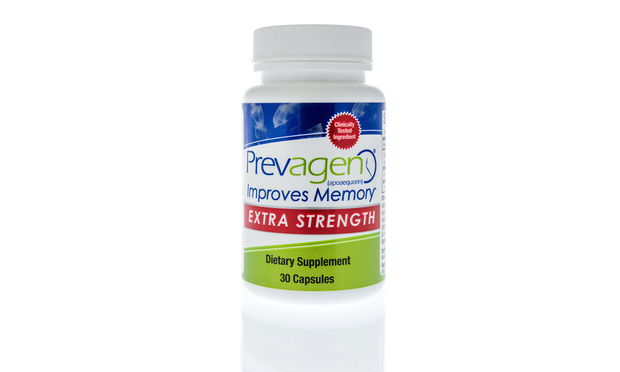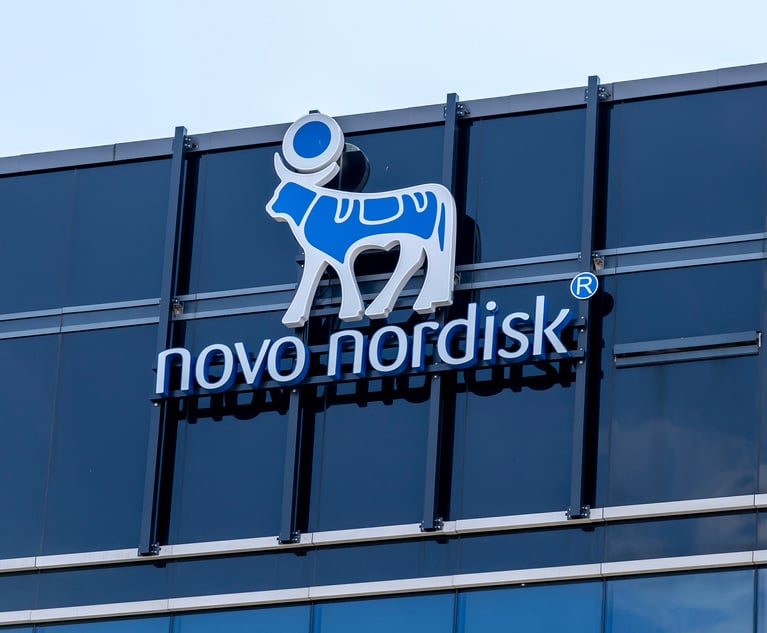Federal Magistrate Judge Recommends Certifying Nationwide Prevagen Class Action in Florida
Adam Moskowitz, among the lawyers representing the plaintiffs, alleges Prevagen is "worthless."
March 20, 2020 at 08:05 PM
3 minute read
 Prevagen
Prevagen
A federal magistrate judge recommended certifying a nationwide class action in a federal court in Miami, which is scheduled for trial Oct. 26 and alleges a pharmaceutical company sold a "worthless" product that was designed to help with memory loss.
On Thursday, U.S. Magistrate Judge Jonathan Goodman of the the Southern District of Florida recommended certifying a class of consumers who purchased Prevagen over the last four years. The Moskowitz Law Firm and Searcy Denney will represent the plaintiffs at trial.
Two purchasers of Prevagen, Juan Collins and John Fowler, contend that Quincy Bioscience used deceptive marketing practices to sell its product, Prevagen, which is supposed to provide memory enhancement. The main ingredient of Prevagen is protein apoaequorin, and Quincy said it is "safe and uniquely supports brain function," according to the class certification motion.
However, plaintiffs argue that Prevagen's memory enhancement benefits are false and inconceivable due to body chemistry. Protein apoaequorin, they said in the complaint, is "merely a protein that, once digested, is completely and rapidly digested and transformed into common amino acids (and possibly small peptides) no different than those derived from other dietary proteins and cannot cross the blood-brain barrier to reach the brain or affect its functioning." A single dose of Prevagen has trace amounts of protein an average person would consume in a day, making it have "no measurable effect on the brain," according to the complaint.
Plaintiffs are suing the company for violations of the Florida Deceptive and Unfair Trade Practices Act in two counts and unjust enrichment in one count. Adam Moskowitz, among the lawyers representing the plaintiffs, said the opinion was well written and the product was "worthless."
"Judge Cooke entered an Order last week setting it for trial October 26 of this year," Moskowitz said in an email. "Tens of thousands of Florida consumers purchased this drug and the opinion spends a great detail of time explaining all of Florida's deceptive and unfair practices law cases."
Quincy did not respond to request for comment.
Goodman denied plaintiffs' bid to expand the class to include those who purchased the dietary supplement when it first hit shelves in 2007, noting Prevagen's box and label did not mention memory improvement for the first couple of years.
Plaintiffs filed their class certification motion about two months after an original complaint was served. They relied on discovery in similar class actions involving the product in the U.S. District Court for the Northern District of California, along with "experts" their counsel retained in the lawsuit, according to the order.
Quincy's attorneys from Kelley Drye & Warren and Genovese Joblove & Battista argued that plaintiffs' fraudulent concealment claim was too vague, and Goodman agreed, ruling that plaintiffs failed to include a required allegation to support a fraudulent concealment theory.
Plaintiffs filed their class certification motion before they obtained discovery from Quincy in the case and prior to a ruling on the motion to dismiss, and the magistrate judge said their "rush to seek certification" could be to blame for their lack of an allegation.
This content has been archived. It is available through our partners, LexisNexis® and Bloomberg Law.
To view this content, please continue to their sites.
Not a Lexis Subscriber?
Subscribe Now
Not a Bloomberg Law Subscriber?
Subscribe Now
NOT FOR REPRINT
© 2025 ALM Global, LLC, All Rights Reserved. Request academic re-use from www.copyright.com. All other uses, submit a request to [email protected]. For more information visit Asset & Logo Licensing.
You Might Like
View All
43 States Reach $700 Million Settlement With J&J in Talc Product Lawsuits

Novo Nordisk Files Multiple Complaints Alleging Trademark Infringement, False Advertising Across U.S.
4 minute read
Ozempic Leadership Fight Escalates: Proposed Co-Leads Are 'Losing Control'
6 minute read
Law Firms Mentioned
Trending Stories
- 1'Reverse Robin Hood': Capital One Swarmed With Class Actions Alleging Theft of Influencer Commissions in January
- 2Hawaii wildfire victims spared from testifying after last-minute deal over $4B settlement
- 3How We Won It: Latham Secures Back-to-Back ITC Patent Wins for California Companies
- 4Meta agrees to pay $25 million to settle lawsuit from Trump after Jan. 6 suspension
- 5Stevens & Lee Hires Ex-Middle District of Pennsylvania U.S. Attorney as White-Collar Co-Chair
Who Got The Work
J. Brugh Lower of Gibbons has entered an appearance for industrial equipment supplier Devco Corporation in a pending trademark infringement lawsuit. The suit, accusing the defendant of selling knock-off Graco products, was filed Dec. 18 in New Jersey District Court by Rivkin Radler on behalf of Graco Inc. and Graco Minnesota. The case, assigned to U.S. District Judge Zahid N. Quraishi, is 3:24-cv-11294, Graco Inc. et al v. Devco Corporation.
Who Got The Work
Rebecca Maller-Stein and Kent A. Yalowitz of Arnold & Porter Kaye Scholer have entered their appearances for Hanaco Venture Capital and its executives, Lior Prosor and David Frankel, in a pending securities lawsuit. The action, filed on Dec. 24 in New York Southern District Court by Zell, Aron & Co. on behalf of Goldeneye Advisors, accuses the defendants of negligently and fraudulently managing the plaintiff's $1 million investment. The case, assigned to U.S. District Judge Vernon S. Broderick, is 1:24-cv-09918, Goldeneye Advisors, LLC v. Hanaco Venture Capital, Ltd. et al.
Who Got The Work
Attorneys from A&O Shearman has stepped in as defense counsel for Toronto-Dominion Bank and other defendants in a pending securities class action. The suit, filed Dec. 11 in New York Southern District Court by Bleichmar Fonti & Auld, accuses the defendants of concealing the bank's 'pervasive' deficiencies in regards to its compliance with the Bank Secrecy Act and the quality of its anti-money laundering controls. The case, assigned to U.S. District Judge Arun Subramanian, is 1:24-cv-09445, Gonzalez v. The Toronto-Dominion Bank et al.
Who Got The Work
Crown Castle International, a Pennsylvania company providing shared communications infrastructure, has turned to Luke D. Wolf of Gordon Rees Scully Mansukhani to fend off a pending breach-of-contract lawsuit. The court action, filed Nov. 25 in Michigan Eastern District Court by Hooper Hathaway PC on behalf of The Town Residences LLC, accuses Crown Castle of failing to transfer approximately $30,000 in utility payments from T-Mobile in breach of a roof-top lease and assignment agreement. The case, assigned to U.S. District Judge Susan K. Declercq, is 2:24-cv-13131, The Town Residences LLC v. T-Mobile US, Inc. et al.
Who Got The Work
Wilfred P. Coronato and Daniel M. Schwartz of McCarter & English have stepped in as defense counsel to Electrolux Home Products Inc. in a pending product liability lawsuit. The court action, filed Nov. 26 in New York Eastern District Court by Poulos Lopiccolo PC and Nagel Rice LLP on behalf of David Stern, alleges that the defendant's refrigerators’ drawers and shelving repeatedly break and fall apart within months after purchase. The case, assigned to U.S. District Judge Joan M. Azrack, is 2:24-cv-08204, Stern v. Electrolux Home Products, Inc.
Featured Firms
Law Offices of Gary Martin Hays & Associates, P.C.
(470) 294-1674
Law Offices of Mark E. Salomone
(857) 444-6468
Smith & Hassler
(713) 739-1250






